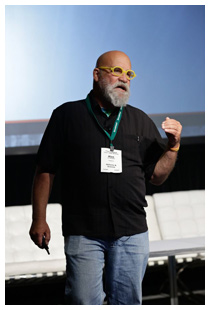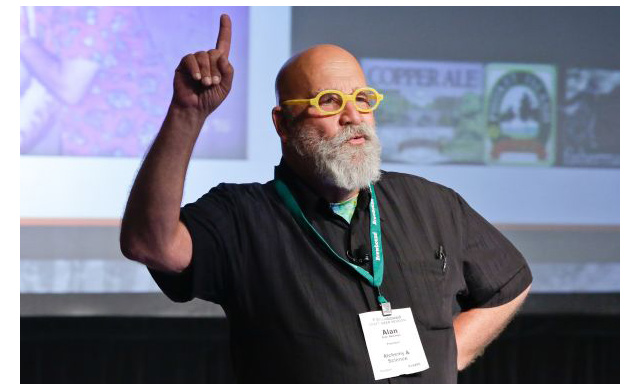
During a presentation to industry professionals at last week’s Brewbound Craft Beer Session, Newman explained the key strategies that led to the success of his former brand.
But those two words — capacity utilization — the art of balancing capital needs, physical brewery space and long term growth plans – seemed to represent a key teaching for the entire day.
“It cost me $5 million to learn this,” he said of capacity utilization.
But it wasn’t all mistakes, as a candid Newman also shared some critical insights into the strategic decisions he felt had helped groom the Magic Hat brand into what exists today. His first lesson for young craft brewers? Focus on home markets before expanding outward.
“I’m a real believer in going deep, not wide,” he said.
This philosophy led to Newman’s first critical decision in the brand’s early stages — hiring “feet on the street,” or a confident and trustworthy sales team.
“I didn’t know enough to know why feet on the street would be valuable to me but I said ‘Sam Adams – the biggest player in craft – and Anheuser Busch – the biggest player in domestic — I doubt they are putting all this money into feet on the street for no reason. I’m going to put feet on the street.”
Newman’s second lesson? Create a sound business plan.
“I am a big believer in planning,” he said. “I really believe strongly in five-year plans and I think they need to be updated.”

And an update was exactly what he needed in 2003 when he brought on a trusted friend and former Pyramid Brewing executive, Martin Kelly. Newman explained that he asked Kelly to “come east and help write a new business plan.” What they discovered was the lack of a major East Coast regional brand outside of Boston Beer Co.
“If you looked out west, there were a bunch of them,” Newman said, pointing to Sierra Nevada, Deschutes, Redhook, Widmer and Full Sail as examples.
Kelly suggested becoming that kind of East Coast brand, and Newman agreed.
“That was, in my opinion, a critical strategic moment in Magic Hat history,” he said. ”Realizing that there was this open road, down the East Coast, that nobody was filling and we could do it.”
Newman explained how simplifying his product lineup, getting behind the No. 9 brand — which he admits “nobody at the brewery liked,” and committing to seasonal variety packs helped grow the company’s bottom line and was “critical to the drive down the East Coast.”
Newman also explained his rationale for looking to a “rollup” with the Pyramid brand, the circumstances that led to his eventual exit from the company and why he is back in the beer business with his new project, Alchemy and Science.
But perhaps Newman’s biggest lesson for entrepreneurs came not from Newman himself, but rather his ex-wife.
“If you don’t like where the road is going, don’t get on the road to begin with,” he said in closing.
In a short Q&A that followed Newman’s talk, Brewbound Editor Chris Furnari asked Newman if he thought the category was becoming too crowded. Newman was blunt.
“The numbers don’t work,” he said. “If we can’t build enough mass to generate enough capital to put into marketingÔǪthe customer and make the customer aware of our personality, and if we don’t have the capital to invest in capacity to make our beers, then we will fail as an industry.”
Below is a short clip from Newman’s presentation.

